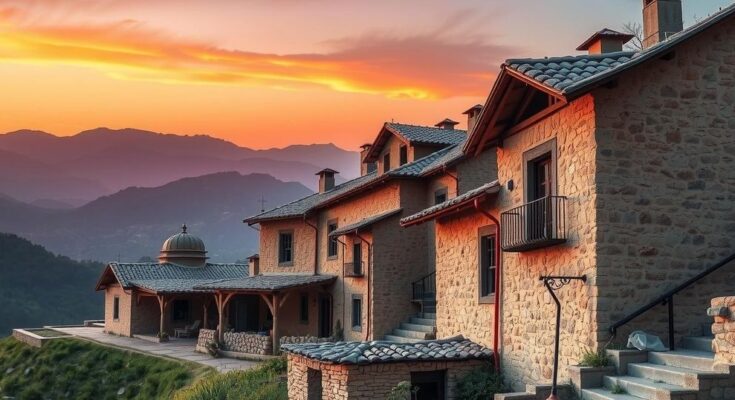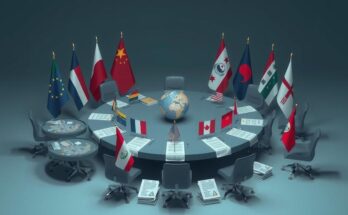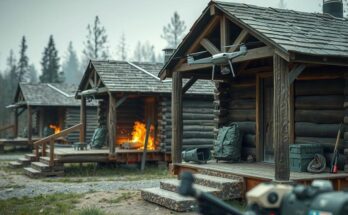Syria’s Druze minority faces a precarious existence amidst shifting power dynamics post-Assad. Caught between an Islamist-led government and Israel, this community struggles to maintain autonomy while seeking inclusion in political processes. Rising tensions reflect concerns over safety, economic hardship, and the ongoing search for a secular, democratic state amidst regional instability.
Syria’s Druze minority is currently navigating the significant changes in their nation’s political landscape following the fall of former President Bashar Assad. This religious sect faces pressure from both the newly established, Islamist-led government and the contentious neighbor, Israel. The Druze community, historically observant of their independence, must now contend with their roles in a restructured governance system that primarily favors the Islamist groups that removed Assad.
Tensions are rising among Syria’s diverse religious and ethnic groups as they grapple with an uncertain future. The transitional government, led by Hayat Tahrir al-Sham (HTS), has promised to include various factions but primarily maintains authority within its former insurgent ranks, fostering distrust among minority communities. Clashes among Alawite supporters of Assad have also contributed to a climate of instability for the Druze.
Despite maintaining cautious relations with the government, the Druze community has encountered violence, most notably in Jaramana, where governmental security forces responded to unrest with arrests amid fears of external intervention from Israel. This recent tension culminated in the display of an Israeli flag in Sweida, sparking outrage among locals who quickly removed and burned the flag.
Druze militias, originally formed to protect against threats from the Islamic State and drug trafficking, remain armed due to deep-seated mistrust of both the government and external forces. In response to the prevailing circumstances, various Druze factions, including the newly formed Sweida Military Council, aim to consolidate their efforts for mutual protection. Meanwhile, leaders emphasize that their arms are solely for defense, hoping for a broad-spectrum Syrian army that benefits all citizens.
Historically, the Druze have played a vital role in Syria’s political tapestry, remaining largely autonomous and often avoiding direct entanglement in conflicts. They seek meaningful participation in shaping a democratic state, wishing to separate religious identity from governance, as reflected in their slogans promoting secularism.
The Druze community is rejecting claims from Israel regarding protective intentions, asserting their Arab identity and loyalty to Syria. Protests have recently emerged against perceived governmental neglect and hopelessness towards economic recovery. Concerns regarding public sector layoffs and a lack of genuine dialogue with minorities have intensified calls for meaningful political reform.
In conclusion, the Druze community in Syria is at a crossroads as they navigate their uncertain role within a changing political landscape. They face pressures from both a new Islamist government and external influences, particularly from Israel. As tensions rise and economic challenges persist, the Druze seek to assert their position in a secular and inclusive Syrian state while maintaining their unique cultural and religious identity.
Original Source: apnews.com




